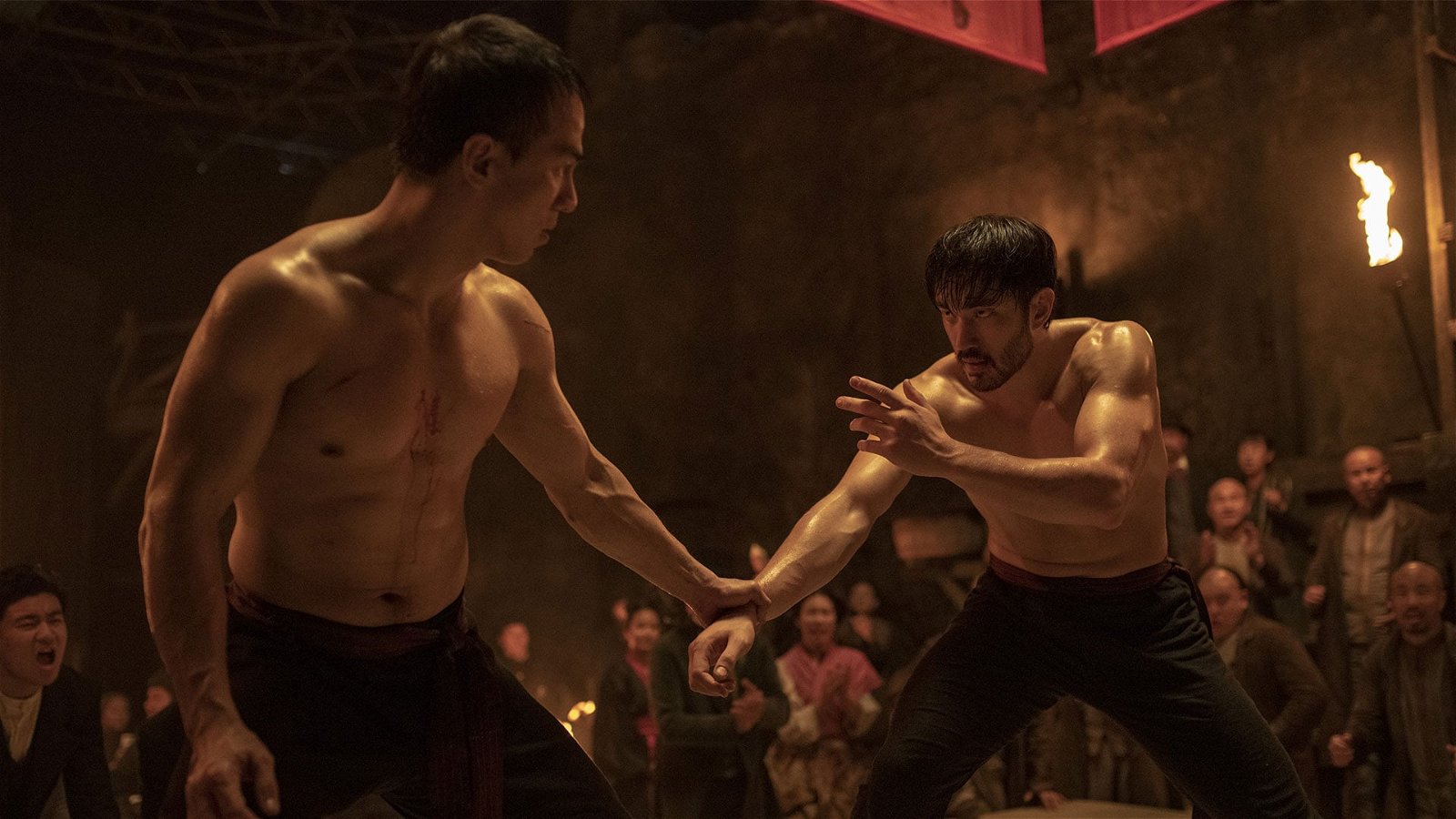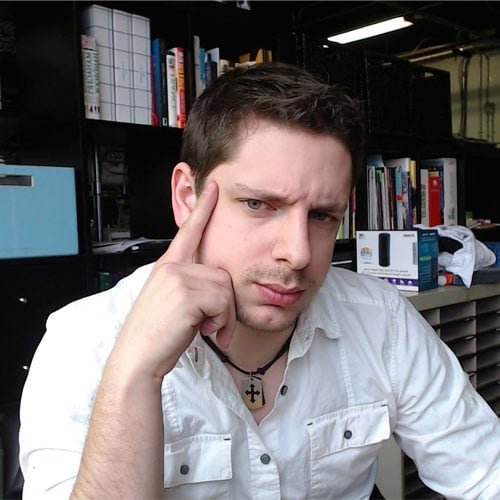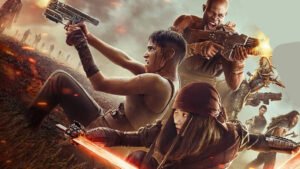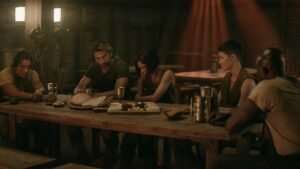CGMagazine talks to Andrew Koji about his experience with Warrior, his experience acting in the West, along with discussing what is next for this young actor’s career.
The landscape of film and television is slowly shifting, and the days of minorities being relegated to the background are slowly changing. While Western screens have a long way to go before we reach parity, as more shows starring Asian actors hit cinemas and TV screens, the faster it will become normalized. One such show pushing this concept forward is Warrior.
Set during the Tong Wars of the 1800s, Warrior centres on Ah Sahm, a martial arts prodigy who, after moving to San Francisco from China, ends up becoming a hitman man for one of the most powerful crime families in Chinatown. Based on the writings of Bruce Lee, Warrior is a heart pounding and exciting experience from beginning to end.
Sitting at the centre of this series is Andrew Koji, a British actor of Japanse and English heritage. Known for his work on The Fast and the Furious and seen in the second season of American Gods, Koji brings a level of presence and physicality to the lead role. In an in depth and engaging phone interview, CGMagazine had the chance to dive into his experience with Warrior, his experience acting in the West, along with discussing what is next for this young actor’s career after such an iconic performance.
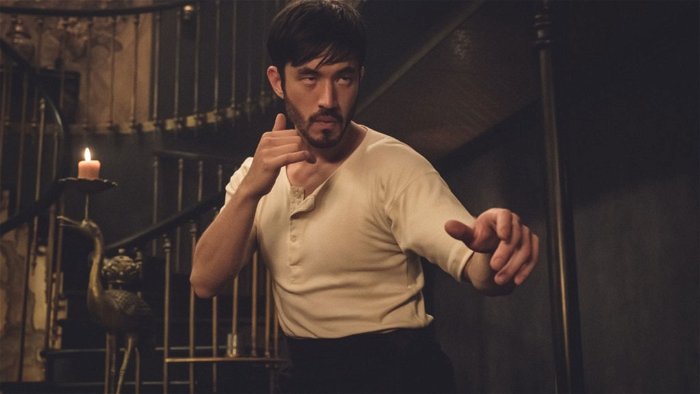
CG Magazine: I wanted to start off by asking what drew you to the role.
Andrew Koji: At first it was just another audition, to be honest. I was at a point in my acting career where I was very seriously considering giving up. I was nearly 30, I’m an only child with mom and dad, and getting old. So I was like, “I can’t support myself by 30. I can’t do this.” In England, the opportunities for Asian actors are very limited.
So I was very, very seriously considering giving up. I was driving home from doing this horrible play to go see my mom and I got the call for this audition.
This one was called Warrior, and I wasn’t initially going to do it because I just thought I needed a break. I didn’t know what to do. And then I read it and thought, “Oh, I’m not going to do that.” And then my mum convinced me. “You know, that sounds like fun. We can do it.” I’ve never done an audition with her, a self-tape with her. I think initially I just read the sides, and I was like, “Who is this guy? I don’t really know him, or what he’s doing.”
Then the whole Bruce Lee-martial arts connection was identified. I should be right for this. A part of me was just like, “Okay, mom convinced me to do it. Well, I’ll do one last thing to show them what I can do. Screw it. This is me, you know, if they don’t like it then it wasn’t supposed to be.” So, I just sent it off and I was honest. If I get it, I’ll do the performances. This plan was as honest as I could get. A few days later the agent called me up and said, “That was a really good audition, they noticed something different about it.” A few days later I got a call to go out to L.A., and flew to L.A., and I still didn’t think once I got there that I’d get it.
I assumed someone with more Instagram followers or maybe someone Chinese or whatever would have gotten the role. The way I always seem to approach this, as an actor, is for any role that you get that you are supposed to get for certain, I believe that you’re attracted to it and that it is attracted to you. You’re probably chosen. Then sometimes, you know, you get a part.
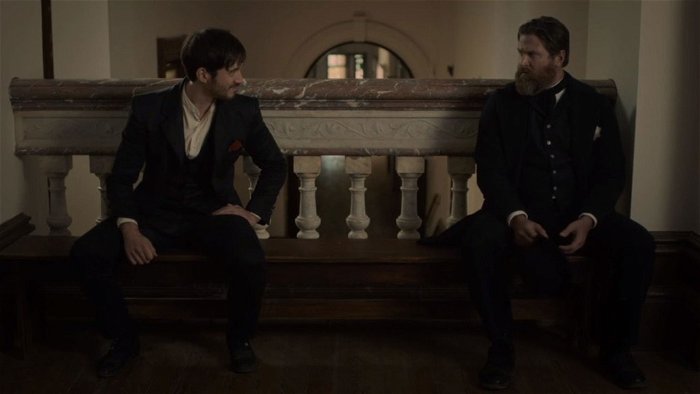
You think, “I’m not going to get that,” or “that’s not right for me.” They somehow see that you were right for it and part of the journey is then going, “Well, what do they see that I didn’t see.” With Warrior, I was shocked when they cast me. I didn’t think they’d cast me, and then a lot of the journey was going, well, what did they see that I didn’t see initially.
I think that was part of the journey. And later I heard that Shannon and Jonathan Tropper were just looking for someone who’d play honest to themselves rather than an imitation of Bruce Lee, which I didn’t even consider at the time. I think that on a surface level, I kind of needed a job at the time. But on a deeper level I think that there were multiple things which came into effect. I think you’re drawn to a role for certain reasons and your role is drawn to you, and being chosen for a role is part of it.
CGM: How did you adapt to the role? When you got there, did you fall into character very quickly? How did that process go, to capture what you see on screen?
AK: I guess having done primarily acting, just being in the world of acting for ten years, I came to understand it from a different angle. Not just, “Oh, this is Mike,” it’s like, how do I express myself, what is that sound and feeling?
You know, expressing myself through each movement. I was trying to do that as much as I could. Sometimes when I see great performances from actors like Viggo Mortensen or Tom Hardy, there’s a physicality and stuff like that. I’d been drawn to that the past few years. I find that fascinating to watch and it’s not necessarily because they’re the most technical, but emotionally, you know they’re really there.
And that wasn’t for me what I was trying to do with the fights. If I’m fighting this guy, I’ve got to feel that ferociousness, or that anger or whatever. So basically a lot of what helped push me through was connecting to all of my emotions. So, a great martial artist can balance things out, and you know that they’re on top of that, but I think Ah Sahm luckily has got a lot to learn. So even though he’s a great young martial artist.
Even in the first episode, you see he meets his match against Joe Taslim playing Li Yong because, emotionally, he’s not all there. So luckily that aligned, and that might have been Jonathan Tropper’s writing.
I think it took a bit of experimentation because in the script, the pilot was written to be a bit more referential to Bruce Lee. We saw what I was doing in training and how I was coming along there. Eventually, they were going, “Okay, we can we can find our own way” because I know they never wanted to have Ah Sahm be like an imitation of Bruce Lee. They just wanted to have references to him.
So I had to adapt. I came at it from a character point of view, like, okay, what has he learned in China? Why was he one of the best fighters in China? I had to approach it from a different way and I think adapting mentally for the role was me learning Bruce Lee philosophies.
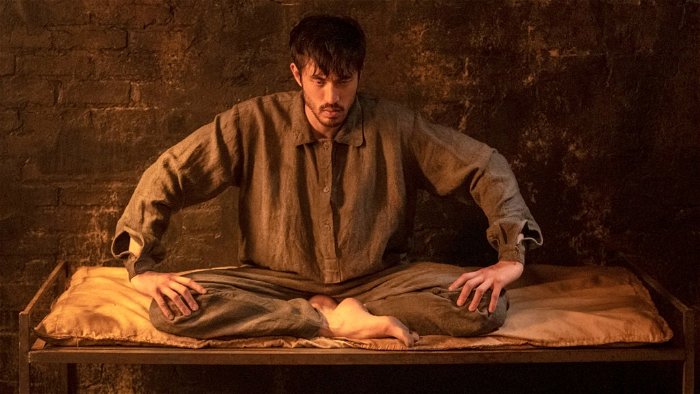
To inhabit Ah Sahm, I had to first become comfortable with Andrew. Therefore, I know how to get that motor rolling. It was driving through training as Andrew to get to where I wanted to be as Ah Sahm. I think I got closer towards the end of the season and I think that was a very collaborative effort. That was Bret, he would notice how I move.
I can’t take a lot of that credit, it was definitely a very collaborative thing with Jonathan. We were all kind of going, “How do we pay homage to Bruce but not indicate it? How do I move?” Because I’m a different build and all that to Bruce and we didn’t want to have it like that. I think fighting’s been on a road since Bruce Lee, and the style has changed with me.
This is more of a grittier and darker, maybe more grounded way of moving through some of his films, so I think we did a lot of experimentation early on. Then there was a lot of collaboration and we had to kind of find things out. Corey graphically says a word, and Jonathan has to incorporate it in the writing at that point.
CGM: I wanted to quickly touch on the importance of Asian cinema and how in recent years we’re seeing more and more films deciding against casting a white actor as the main focus. Do you think this particular series is important to that front, kind of pushing that idea forward or is it just one of many?
AK: I think it can be considered an important step. I think, firstly, it shines a light on a time that most people might not know about. I certainly didn’t know about it. And I also think it’s notable that I’m allowed to play a character which I never thought I’d be able to, with different layers and all that stuff. I think it might be one of a few that will hopefully lead to many.
At the end of the day I think about Bruce Lee. One of the questions [he was asked] on one of his black and white interviews was, “How do you see yourself?”
He said, “I see myself as human being. Under the sky, we’re all humans.” I’m paraphrasing horribly, but I think that the end goal is just to get to who you are as an actor.
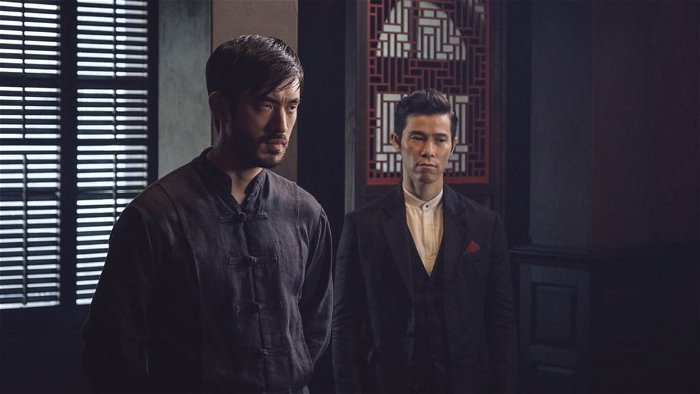
I personally don’t think if you’re Chinese you should be limited just to playing Chinese, because then how can a Caucasian Brit play a Caucasian American if that’s the same rules? I think for sure it’s a stepping stone because we’re playing very different kind of characters than you normally see. That will probably open up the conversation now. I’m able to do scenes and do things that I think as an actor as a character I didn’t think I’d get to do prior to this, you know.
I think if we’re seen in that way (and obviously media representation can obviously affect the wider perspective and the perception of people as a whole), I think that could probably lead to, not necessarily just Asians, but these people I like too. There’s more than if they’re just seen in a different way if they’re portrayed differently. That could, therefore, hopefully, lead to a few more things. I think it all seems to be positive changes at the moment.
To read the full interview, please pickup CGMagazine Issue #35 digitally or at your local magazine retailer
